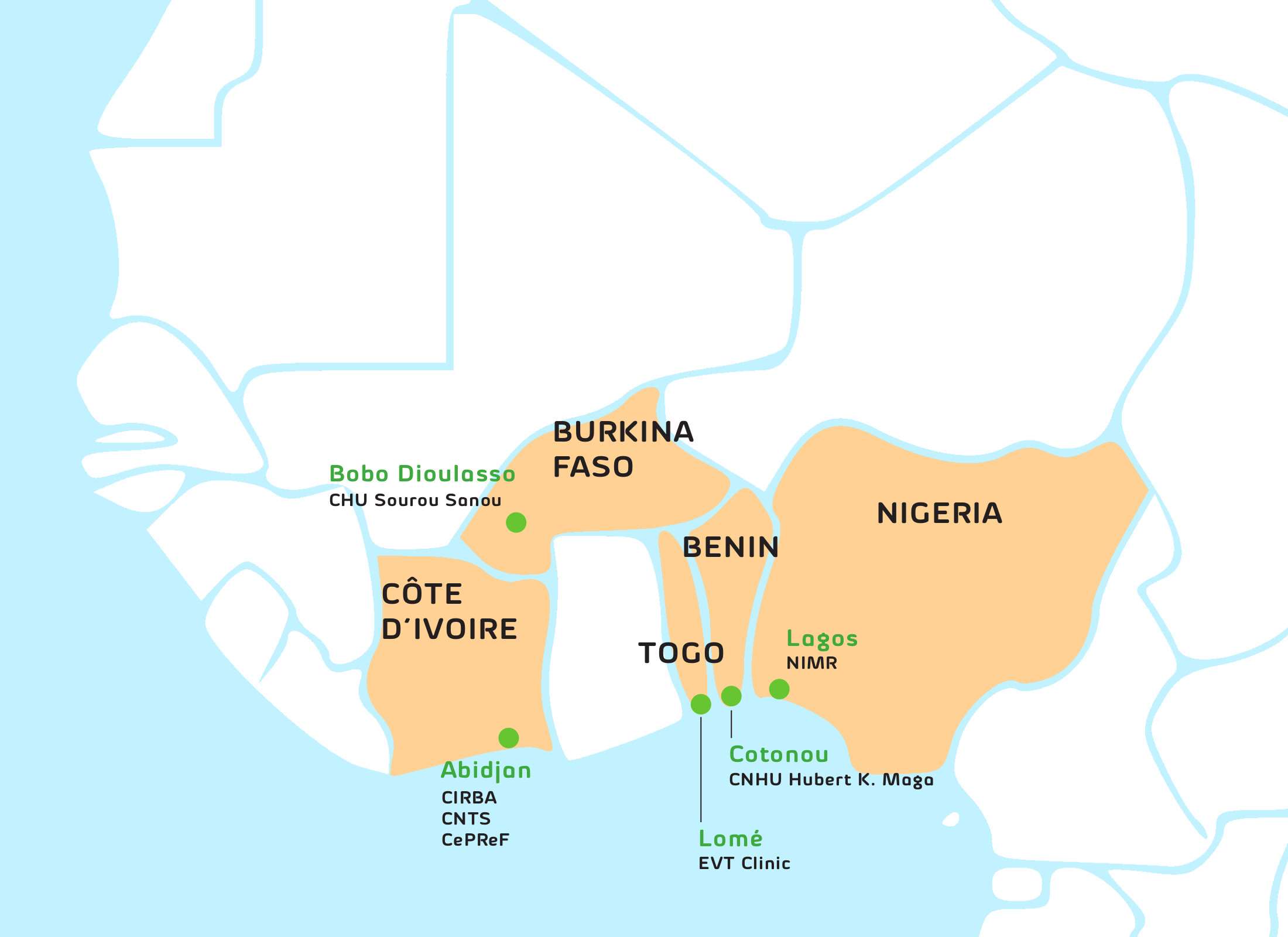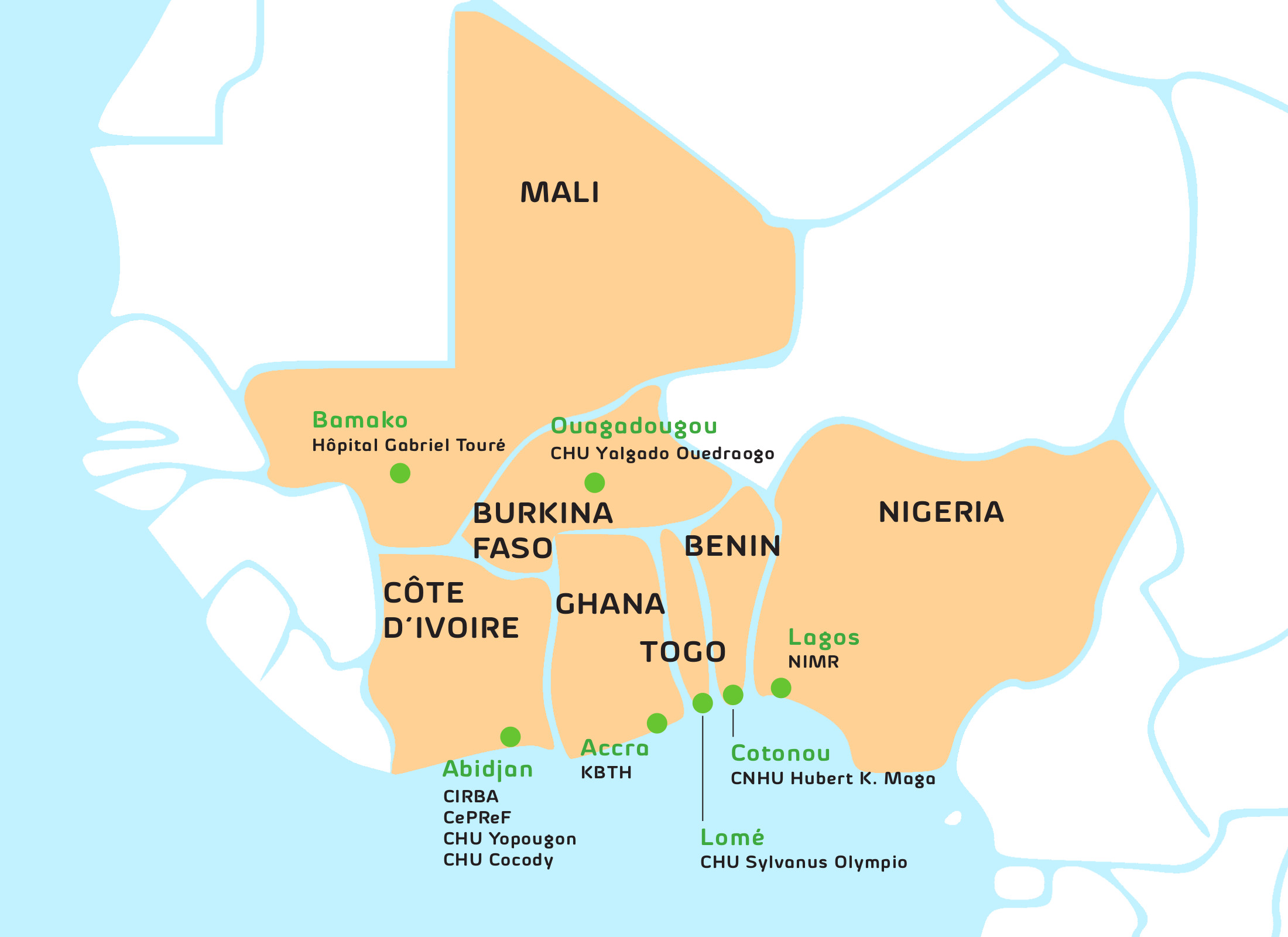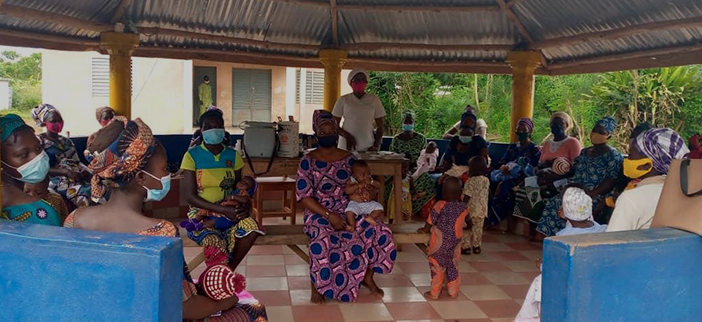Collaboration IeDEA Afrique de l’Ouest et son fonctionnement
La collaboration IeDEA Afrique de l'Ouest rassemble les données collectées régulièrement par les programmes VIH participants sur les personnes vivant avec le VIH (PVVIH) initiant un traitement antirétroviral (TAR) au niveau régional. La base de données générée comprend plus de 50 000 patients adultes (16≥ ans) qui ont déjà initié un TAR dans les sites participants et plus de 12 000 enfants et adolescents inscrits dans les soins des cliniques pédiatriques du VIH.
Objectifs principaux et secondaires
En combinant des données longitudinales provenant de variables collectées de façon routinière par les programmes VIH des partenaires et des études de cohortes prospectives approfondies, le consortium IeDEA Afrique de l'Ouest aborde des questions de recherche liées au continuum de soins du VIH ainsi qu'aux comorbidités liées au VIH chez les PVVIH sous TAR. Plus précisément, nos objectifs primordiaux sont les suivants :
- Identifier les obstacles individuels et structurels associés au continuum des soins du VIH, du dépistage du VIH à la rétention dans les soins et à la suppression virale dans toute l'Afrique de l'Ouest.
- Évaluer l'impact des nouvelles approches préventives visant la morbidité liée au SIDA, y compris le cancer du col de l'utérus et la tuberculose.
- Déterminer le poids et les prédicteurs des maladies non transmissibles chez les PVVIH sous traitement antirétroviral en Afrique de l'Ouest et évaluer leur impact sur les résultats liés au VIH.
La collaboration IeDEA Afrique de l'Ouest est dirigée conjointement par le Dr Antoine Jaquet (Université de Bordeaux, INSERM, IRD, Bordeaux, France), le Pr. Didier Ekouevi (Université de Lomé, Togo), et le Pr. Igho Ofotokun (Université Emory, Atlanta, USA).
La collaboration IeDEA Afrique de l'Ouest est coordonnée à l'Université de Bordeaux, France, avec un bureau régional hébergé par le programme PACCI, une organisation non gouvernementale orientée vers la recherche et située à Abidjan, Côte d'Ivoire. Les institutions partenaires sont l'université Emory, Atlanta et l'université Washington, Seattle.

7 cohortes suivant des patients adultes VIH dans 5 pays

10 cohortes pédiatriques VIH dans 7 pays
Veuillez patienter
